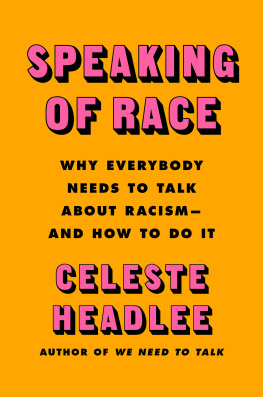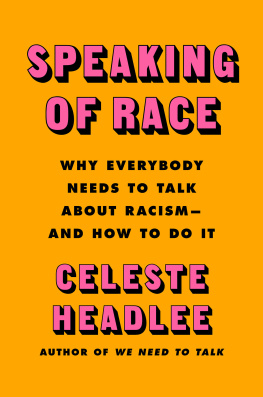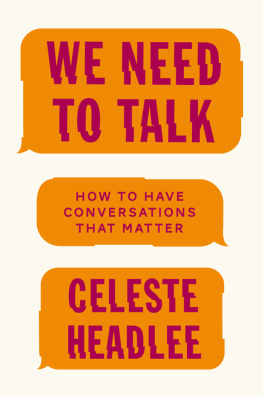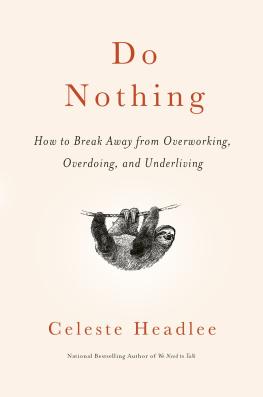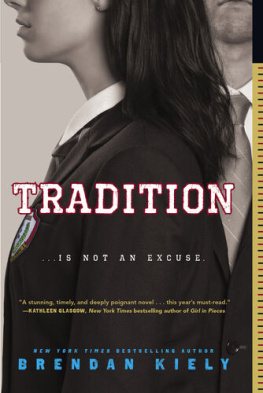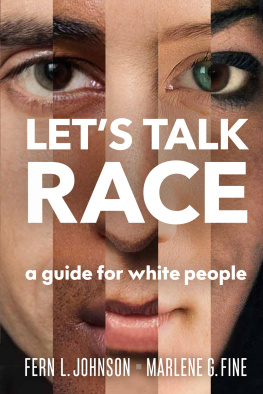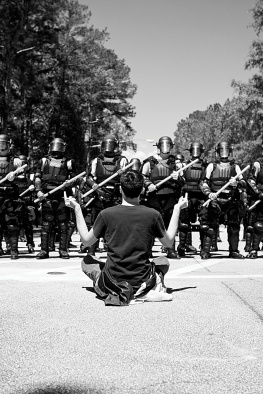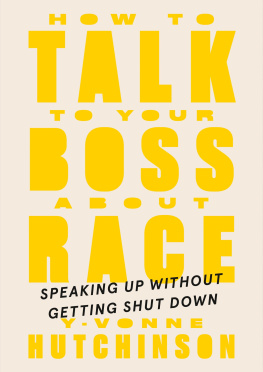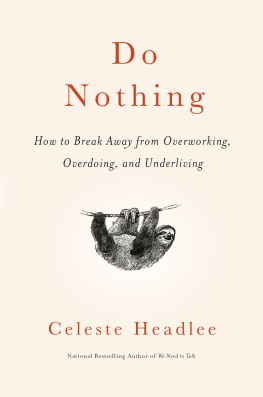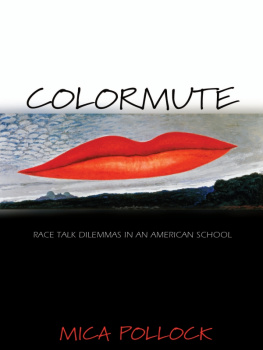Contents
For my grandfather William Grant Still, whom I still love fiercely and who would be so proud of me
Systemic racism is like a disease. Some of us are infected. Some of us have no side effects, some of us are asymptomatic, but one way or another, all of us are affected.
Denise Horn, Director of Inclusion Marketing and Communications at Warner Media
Stop for a moment, take a breath, and pay close to attention to what Im about to tell you: you are biased. Whether you enjoy talking to highly attractive people more than to less attractive people, or take advice more seriously when its dispensed by someone who is educated, or assume dog owners are nicer than people who dont own dogs, you are biased.
If you grew up in the United States, youre probably sexist, too. Thats because sexism is codified in our governments policies and our social structures. It is an entrenched part of our culture. Both men and women in this country make assumptions based on sex. Im sure it comes as no surprise that the same is true of race. It is, after all, our original sin.
All of this is to say: If someone suggests that you are prejudiced, the most accurate response is Yes, youre right. I am. Because the truth is that everyone is biased. Everyone. We all make assumptions about people based on superficial observations: the books they read, the clothes they wear, the neighborhoods they live in, the type of work they do, the kind of car they drive.
I have thought about bias and race nearly every day of my life, and I have come to realize that the majority of people believe they are not biased, that theyre mostly fair and just in their dealings with others. Ive also come to understand how wrong that assumption is, how our understanding of bias is hampered because of our insistence that the problem lies in other peoples attitudes, and not our own.
I spent many years worrying about whether I was allowed to call myself Black, and if I didnt, whether it would be an insult to my ancestors to let others believe I am white. Ive been lectured about color by both Blacks and whites. Ive devoured as much material on the subject as I could. Had I devoted this much time to the study of any other topic, I would call myself an expert, but I dont claim that title in this area. There is still so much for me to learn.
While there are many brilliant scholars of race theory and racial history, no one is an authority on all aspects of racism and diversity. Consequently, there are two things I want to establish immediately. First, everyone is a work in progress when it comes to prejudice and human diversity, with room for education and enlightenment. Second, racism has wasted enough of our time. Action need wait no longer for further information. We know enough about racism to know that it must end.
Weve already given too many lives and endured too much suffering for the sake of something that doesnt exist, scientifically speaking. Racism is real, but race is not.
It boggles my mind that weve squandered so much on perceived racial difference. What if we had never fallen prey to racism and prejudice in the first place? Can you imagine what more Martin Luther King Jr. might have achieved if he hadnt felt an urgent need to battle racism? Obviously, he accomplished a great deal, but what might he have done if his civil rights work was unnecessary because Blacks were not disadvantaged and targeted? What more might he have been able to achieve in the area of poverty had he not been killed? Would his life have been cut short in the absence of racism? What about Harriet Tubman or Frederick Douglass? What might they have accomplished? What might James Baldwin have written about? What might Angela Davis have done?
If we are to finally put this woeful history behind us, we must talk about it with honesty and authenticity, open our mental doors and air out the musty cupboards of our prejudice, lift the rocks and send the creepy-crawlies of racism scrambling. As Baldwin wrote, Not everything that is faced can be changed, but nothing can be changed until it is faced.... Most of us are about as eager to change as we were to be born, and go through our changes in a similar state of shock.
If you want to learn about racism, you can. If your goal is to become educated so that you understand the history of segregation, the causes of inequity in the criminal justice system, and the exact meaning of the term white privilege, there are many thoughtful and enlightening books that will help you achieve that aim. I strongly support that kind of research, but this is not one of those books.
This is also not a book that will teach you how to have the kind of ineffectual discussion of race that so many of us have had. Too often when people say they want to talk about race, they mean they want to talk with someone who holds mostly the same opinions they do or, if theyre willing to speak to someone who disagrees, its because they hope to change their mind, rather than to learn something. Thats all right. We are, after all, human. We dont like changing our minds or being told were wrong.
A 2017 study published in the Journal of Experimental Social Psychology revealed that both those who considered themselves politically conservative and those who identified as liberal were equally averse to hearing opposing viewpoints. That is, were all as likely to discount the information that proves us wrong and give extra weight to the evidence that bolsters our existing views.
Every time we hear something that confirms our opinions, our brains get a little boost of dopamine. You see the problem, right? You might enter a conversation with someone you think is racist, hoping to enlighten them and open their eyes, while they are equally determined to convince you theyre not racist at all, that youre wrong and not seeing the issue clearly. No one wins in these conversations, and no progress is made by reinforcing the opinions of a racist.
Even worse is the kind of shouted exchange that occurs between anti-racist activists and counterprotestors screaming at them from the other side of the street. As the psychologists Craig Foster and Steven Samuels wrote in the Skeptical Inquirer, Yelling at white supremacists seems unlikely to make them less racist. Indeed, it might do more harm than good.... Plus, the conflict between white supremacists and protestors might serve to invigorate the white supremacist community. It gives them a sense of purposetogether they stand against the brainwashed liberals who are taking their country from them.
This may be why some have urged Americans to reach out to those who hold abhorrent beliefs, and to avoid shaming them or scolding them. In 2017 in The Forward, a publication aimed at a Jewish American audience, Bethany Mandel wrote a column titled We Need to Start Befriending Neo Nazis. She noted that, while shes not sure she herself could do it, some people have had success in changing the minds of even unrepentant racists through the power of listening, and treating these people with their heinous views as humans first and foremost. Not surprisingly, Mandels piece was called divisive, and the arguments refuting it came swiftly and decisively.
I dont blame you if you dont want to sit down for a heart-to-heart with a neo-Nazi, but thats not the kind of conversation about race Id expect you to be having anyway. In truth, few of us engage in casual chats about race with strangers; its much more likely that we discuss these issues with people we know and love, like family members. Part of what often makes these encounters so fraught is the sense of betrayal we feel when a family member argues with us on a matter of fairness and equality. We all need to experience a sense of belonging with others, says Suzanne Degges-White, chair of the Department of Counseling and Higher Education at Northern Illinois University, and when we feel that our families do not understand or agree with our perspective, it can be emotionally distressing. We may try even harder to convince family members to share our own beliefs than we would acquaintances or strangers. In the end, we can choose friends based on shared perspectives and we can end friendships when our values dont align, but were mostly stuck with our family members. That can make us even more desperate to change their minds.

